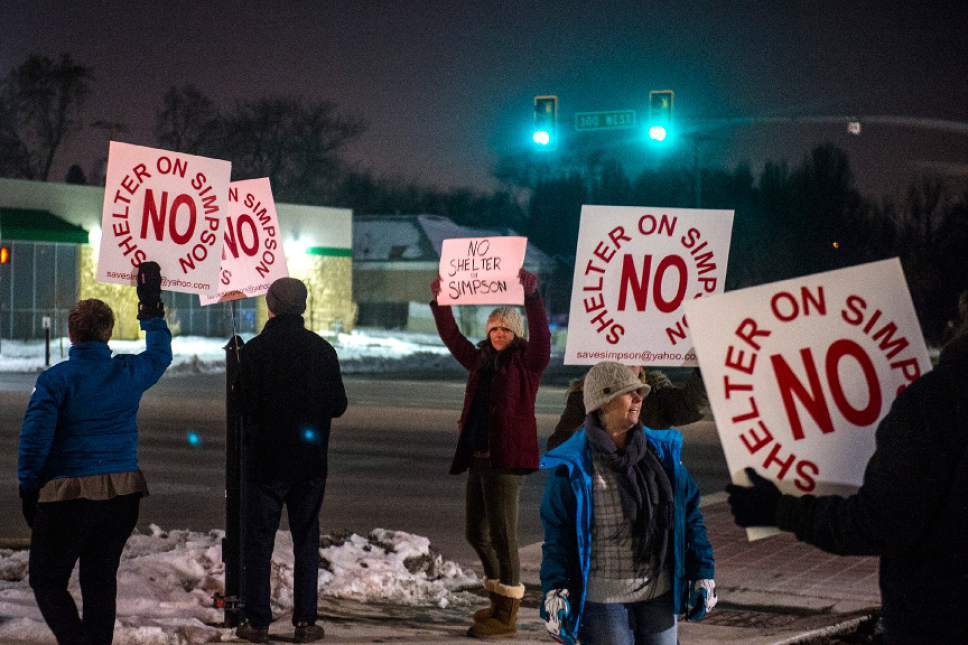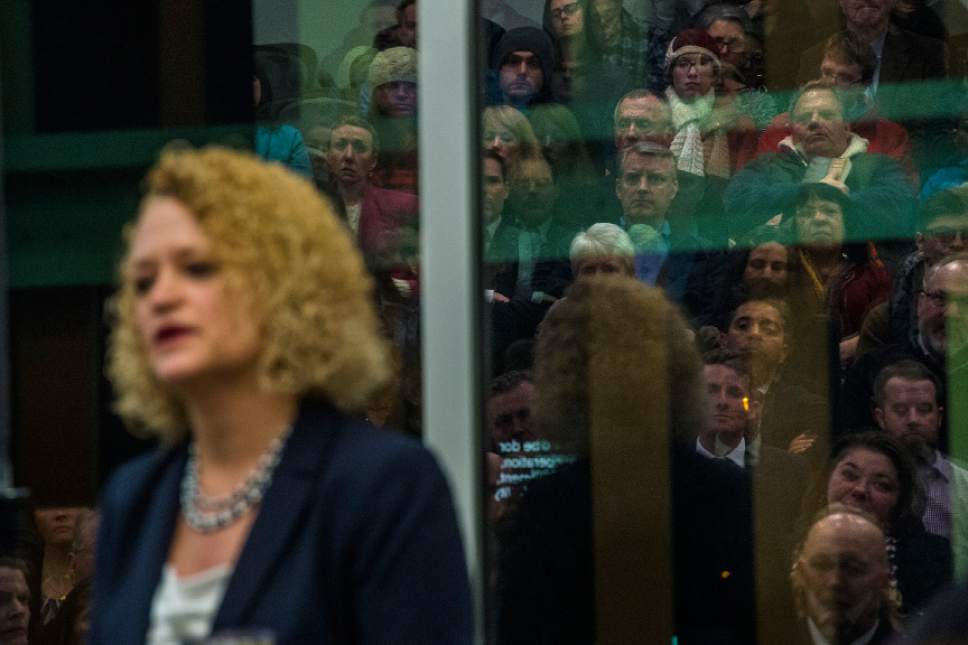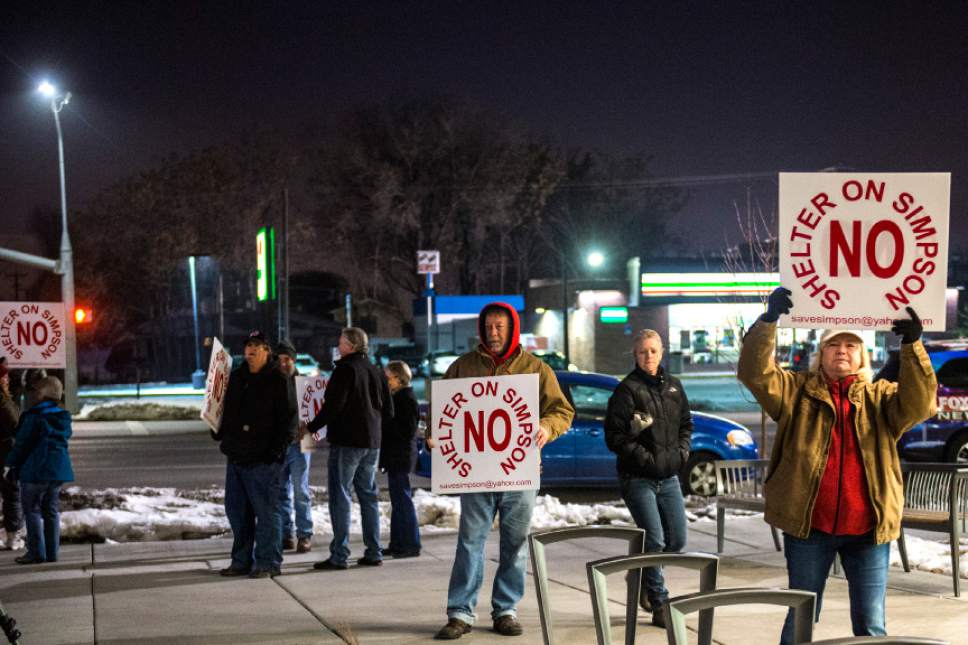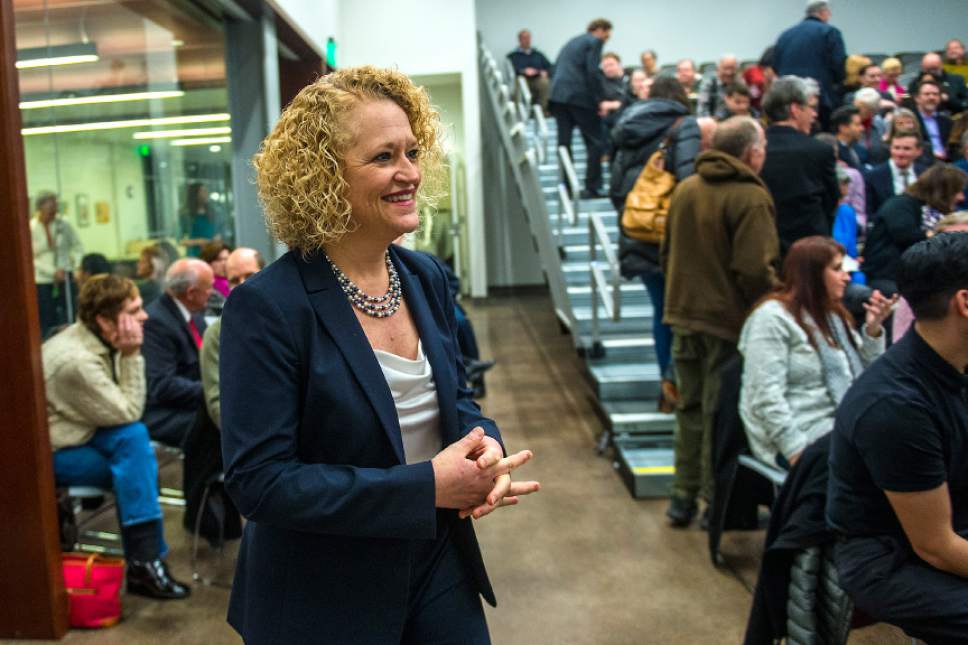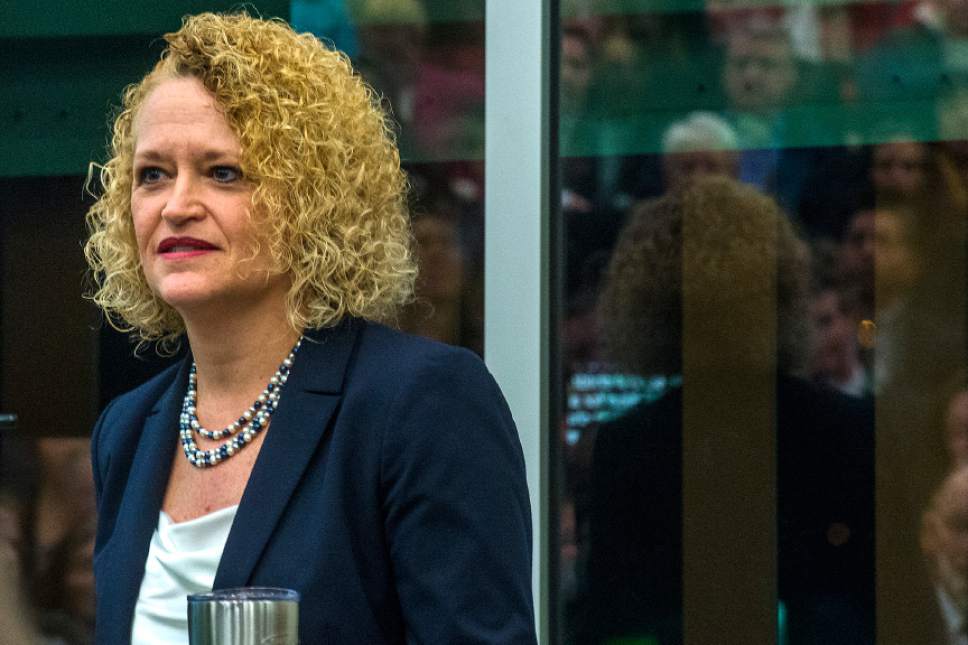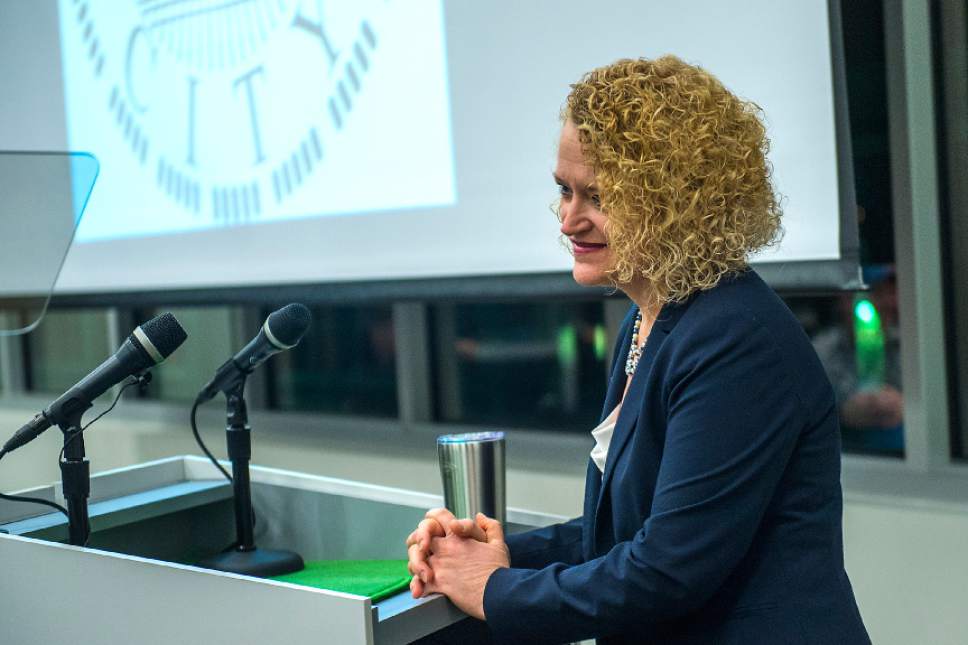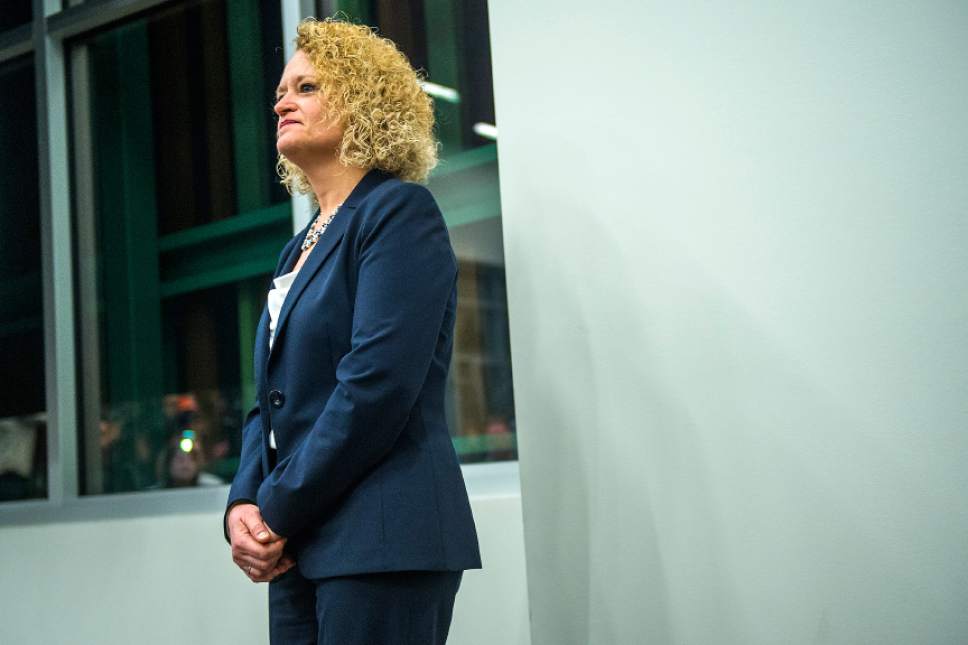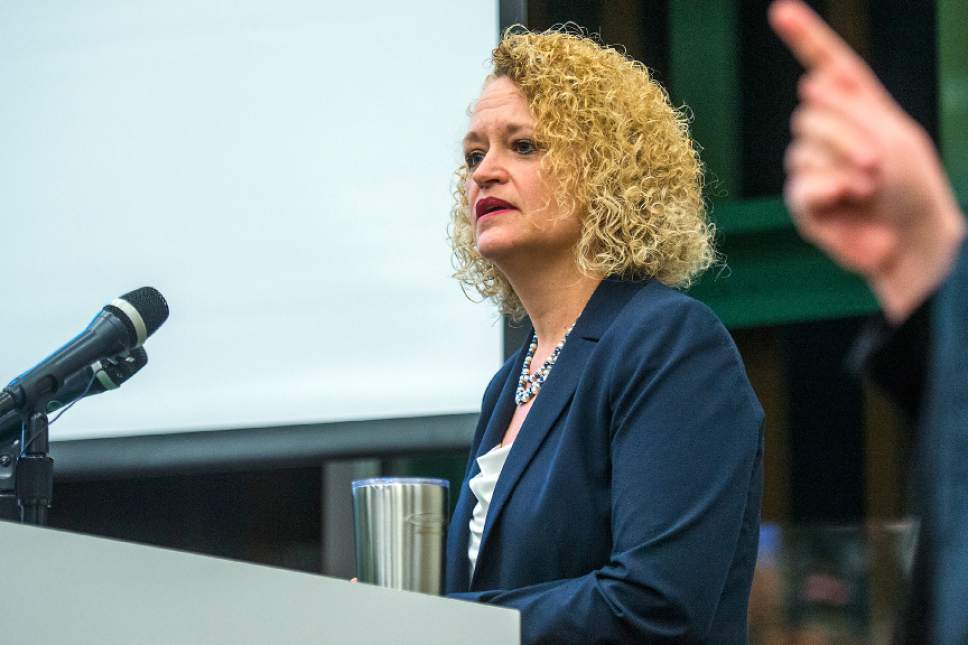This is an archived article that was published on sltrib.com in 2017, and information in the article may be outdated. It is provided only for personal research purposes and may not be reprinted.
Salt Lake City's first affordable housing plan since 2000 calls for "bold" changes to city policy that include "removing local barriers" to needed housing.
Mayor Jackie Biskupski spoke broadly about the long-awaited plan during her 40-minute State of the City address Tuesday, delivered to a shoulder-to-shoulder audience in the Marmalade Library auditorium.
"We are not simply focused on numbers, but in laying groundwork across the city to support and foster affordable housing," Biskupski said of the plan, which she said will be shared Thursday and address a "moral imperative" to resolve the city's estimated shortage of 7,500 affordable housing units.
Other stated goals for 2017 include moving forward with the design of four 150-bed homeless shelters that would eventually phase out the 1,100-bed Road Home shelter at 210 S. Rio Grande St. — even as many still seek the withdrawal of a controversial shelter site at 653 E. Simpson Ave.
Dozens of bundled-up protesters met attendees near the front door and asked them to "Save Simpson," an ever-present reminder of the challenges Biskupski faces in her second year.
Asked after her speech what she might change about her approach, Biskupski said the city had been "very good," generally, in its outreach efforts, "but we did misstep."
The city's publication Monday of a draft policy that would release body-camera footage of officer-involved shootings after a maximum of six months was evidence of an enhanced focus on transparency, she said.
Much of Biskupski's speech touched on what others could do for the city.
Salt Lake County could open up more jail space to resolve an open-air drug market at the downtown shelter in which lawbreakers are set free for want of beds.
Operation Diversion, a law enforcement effort to separate dealers from buyers and victims that was primarily funded by Salt Lake County, "must be part of moving forward as we build new resource centers," she said.
Biskupski called on the City Council to approve a Redevelopment Agency budget proposal that "restores necessary funding to projects currently underway" after the council's October raid of $21 million for affordable housing — though city spokesman Matthew Rojas said the revised budget will preserve the $21 million for that purpose.
Biskupski also asked that the council sign off on a recently proposed ordinance that would require buildings over 25,000 square feet to "benchmark" their energy use and identify where reductions could be made.
And her hints at the affordable housing plan suggested much of the onus will be on the council to produce some of the "bold" changes she mentioned.
Those changes "must include removing local barriers — which limit density, prohibit needed housing types and create development burdens," Biskupski said. "All of this contributes to the supply deficit, and worse, economic segregation."
Said council Chairman Stan Penfold: "If it's a recommendation to change our zoning or building practices, that would require a pretty significant City Council role."
But Biskupski struck a conciliatory note as she asked for help.
The shelter site purchases "acknowledge our belief" in the county's homeless service programming, Biskupski said. That marks a slight tonal shift after a recent suggestion that the county made an inflated promise to reduce the overall homeless population while the 150-bed shelters are built.
She also gave Penfold a shoutout for his involvement in establishing the Police Department's Community Connections Center, which she said had referred more than 200 people to treatment. She announced to applause that she will add three social workers to the center. She also began her remarks by thanking council members for their attendance.
Afterward, council member Erin Mendenhall said she realized as Biskupski listed her first year's merits that the city had accomplished a lot.
"It was a good speech, and I was encouraged," Mendenhall said.
Said council member Derek Kitchen, who like Mendenhall has been critical of the mayor, said "it's clear that the mayor and the City Council have very similar goals and ambitions."
Through "nearly doubling" the number of officers doing "beat" policing in neighborhoods, Biskupski said, the city achieved more than a 7 percent drop in homicides, sexual assaults and armed robberies.
She also touted the fulfillment of a promise from her first State of the City address, last January: the elevation of the city's economic development division to a department and the hire of director Lara Fritts.
Biskupski said the city's economic arm led UPS to site a regional shipping center in the corner of the Northwest Quadrant, an area that Biskupski said will receive more planning attention in 2017.
Her priorities aligned closely with those identified by the City Council at a retreat the week prior, council members noted, with one exception: Biskupski spoke little about the city's infrastructure.
Competing against President Donald Trump, who in the same hour announced his nomination to fill a Supreme Court vacancy, Biskupski said Trump's executive orders regarding immigration and refugees "are not in keeping with the values of this nation, and certainly not of our city."
She pointed to refugee liaison Fatima Dirie, a Somalian refugee, and city administrative assistants Tina Benj, a Sudanese refugee, and Galina Urry, a Ukrainian refugee.
It is because of women like those, Biskupski said, "that I can confidently say tonight: The state of our city is strong."
A Salt Lake Tribune-Hinckley Institute poll of Salt Lake City's registered voters found that as of mid-January, about half of the city's residents either somewhat or strongly approved of Biskupski's work during her first year as mayor.
Biskupski said at the time that those results reflected an unchanged level of support, given that she beat two-term incumbent Ralph Becker 52 percent to 48 percent last November.
Becker once polled as high as 84 percent approval and was reportedly in the low 70s during his final year in office. He said Tuesday he didn't recall a poll during his rocky first year and a half, which coincided with the Great Recession, but that he generally had an approval rating between the mid-60s and the low 70s.
Twitter: @matthew_piper


